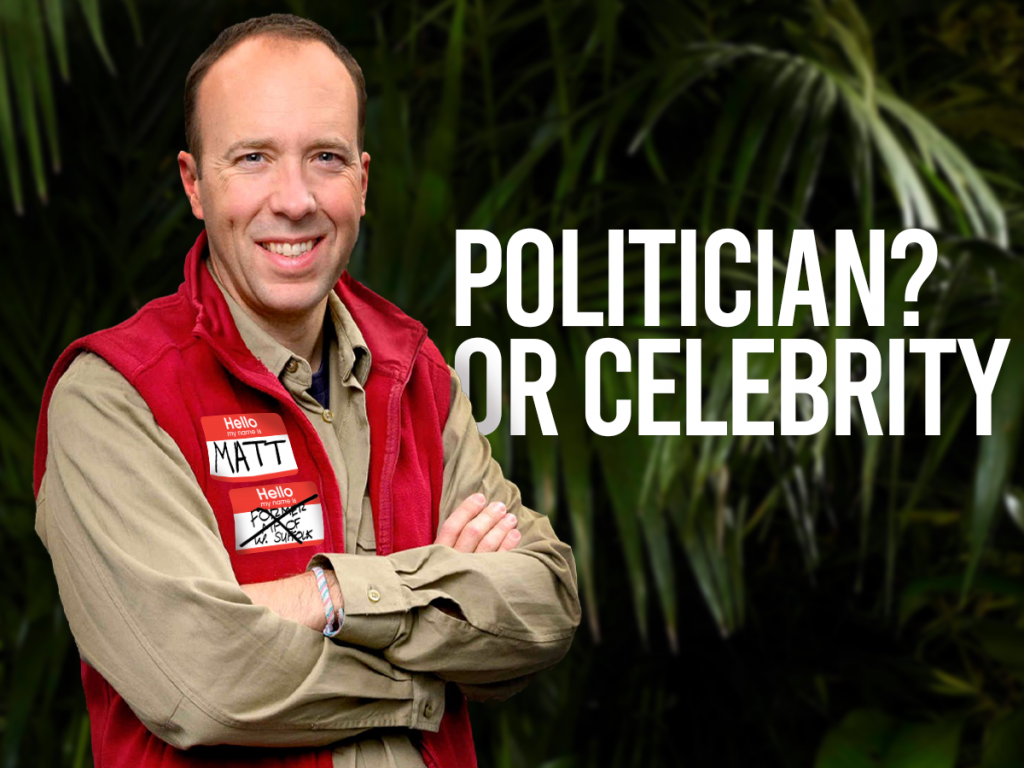Lily Bass explores whether politicians can ever really be considered celebrities, contending with the blurring of this boundary and its injustices.
In the United States, the boundaries between celebrities and politicians have long been blurred. Ronald Reagan notoriously ditched his showbusiness legacy in 1981 in favour of the political sphere. Similarly, in 2016 Donald Trump waved goodbye to his life on The Apprentice to embark on his presidential journey. Trump’s presidency seemed to ignite an almost ceaseless flurry of presidential announcements from celebrities in years to follow, from faces as famous and recognisable as Caitlyn Jenner and Kanye West. In fact, the celebrity-turn-politician narrative has become so normalised in America that a recent poll found that 46% of Americans would happily support a presidential run from Dwayne ‘The Rock’ Johnson.
Within the British political scene, you’d have a much trickier task in finding celebrities willing to leave behind their mansions for a room at No. 10. Of course, you’ll stumble across myriad examples where the situation is reversed – politicians becoming celebrities. This is pretty much a standard evolutionary process – even right of passage – for politicians, anywhere and everywhere, at the end of their political career. They publish an all-revealing biography. They release an explosive docu-series. This isn’t inherently problematic, either. I personally found Michelle Obama’s ‘Becoming’ to be a deeply enriching read and I also can’t help but look forward to the annual release of her husband’s ‘Summer Playlist’.
But what about politicians seeking fame who still have political duties? An apt example of this is Matt Hancock, who decided to join ITV’s ‘I’m A Celebrity Get Me Out Of Here’ this year. The British ex-health secretary, who was caught on CCTV camera breaching his own lockdown rules whilst embracing his ex-aide Gina Coladangelo, claimed that his decision to join the show was driven by a desire to promote dyslexia, whilst showing that politicians are human and make mistakes like the rest of us. “I messed up and I fessed up,” said Hancock early on in the show.
Is Hancock’s ITV appearance a genuine attempt to redeem his reputation, or purely for self-promotion? Throughout the show, Hancock was notably trying to feed into the idea that humans are fallible, and with the former health secretary making it to the semi-final of the series, many viewers evidently thought Hancock deserved forgiveness for this reason.
However, can bushtucker trials really be poetic justice? Arguably, eating a few insects (and, may I add, not even feigning disgust) does not entail public redemption. Perhaps Hancock really did take valuable time off from his role as the MP for West Suffolk to promote dyslexia, not merely to cleanse his guilt. Maybe it was the genuine reason behind his decision to accept the gig, and it just conveniently happened to bag him £400,000 and provide the opportunity to promote his new book…
Yet, the sense of an almost visceral disgust when Matt Hancock was announced to appear on ‘I’m A Celeb’ was undeniably palpable. There seemed to be a universal feeling that this was nothing but a narcissistic stunt for self-promotion – a feeling that failed to fade despite Hancock’s desperate attempts throughout the show. It’s no wonder many of the camp members, most notably Boy George, found his presence in the jungle so repulsing: it trivialised the pain of those who died unnecessarily because of his mistakes.
Edited by: Rebecca Pearson – Deputy Editor
Header designed by: Sarim Mangi


